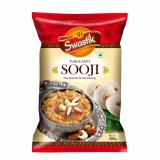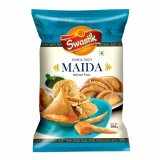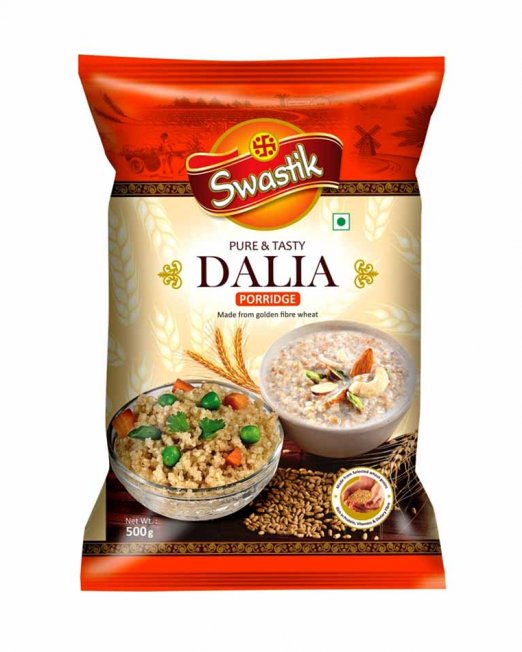Besan
Besan
Swastik Besan, also called gram flour, is made from channa dal, dried chickpeas and is a staple ingredient in many Indian and Pakistani foods. Some people may be more familiar with the name garbanzo beans for chickpeas, and further, others may confuse besan, with gram flour.
You will also occasionally see besan called ground chickpea lentil flour. It is actually the case that a variety of beans are called lentils, but in this case, besan refers exclusively to what we commonly refer to in the English-speaking world as garbanzo beans.
You will find numerous recipes that use the exceptionally high protein and gluten-free besan. It's used as a coating on many of the deep-fried favorites of India including the mouth-watering vegetable fritters called pakoras.
Many Indian curries are most authentic when they include besan to thicken the curry sauces that coats vegetables. Besan is used as a thickener in soups and sauces of all types.
Besan is finely ground, not coarse as is the chickpea flour used to make falafels. Some varieties are made from dried roasted chickpeas, which gives the flour a wonderfully rich and nutty taste. You can use it in place of a number of different flours that you'd find in the Western world, in a straight substitution, or by using a half/half mixture of besan and wheat flour.
When you compare Swastik besan to standard white flour, you can see that nutritionally, besan is far superior. A cup of besan has 20.6 grams of protein, as compared to the 16 grams in whole wheat flour and the 12 grams in wheat/white flour. It is lower in carbohydrates and calories than is wheat flour of any type. Besan is not a low carb food by any means, containing more fat than does wheat flour, about six grams per cup.
Since many people are now avoiding more glutinous flours, you may find Swastik besan in low-gluten flour mixes particularly at natural food stores. Natural food stores may additionally carry besan or gram flour; look for it in the bulk food section or refrigerator if you don't find it next to the other flours.
Once you've obtained besan, it is best stored in the refrigerator. The oil content in the flour can make it turn rancid more easily than other flours. In an airtight container in the fridge, besan can usually be kept safely for about six months.
Products
-
$51.00
-
$50.00










